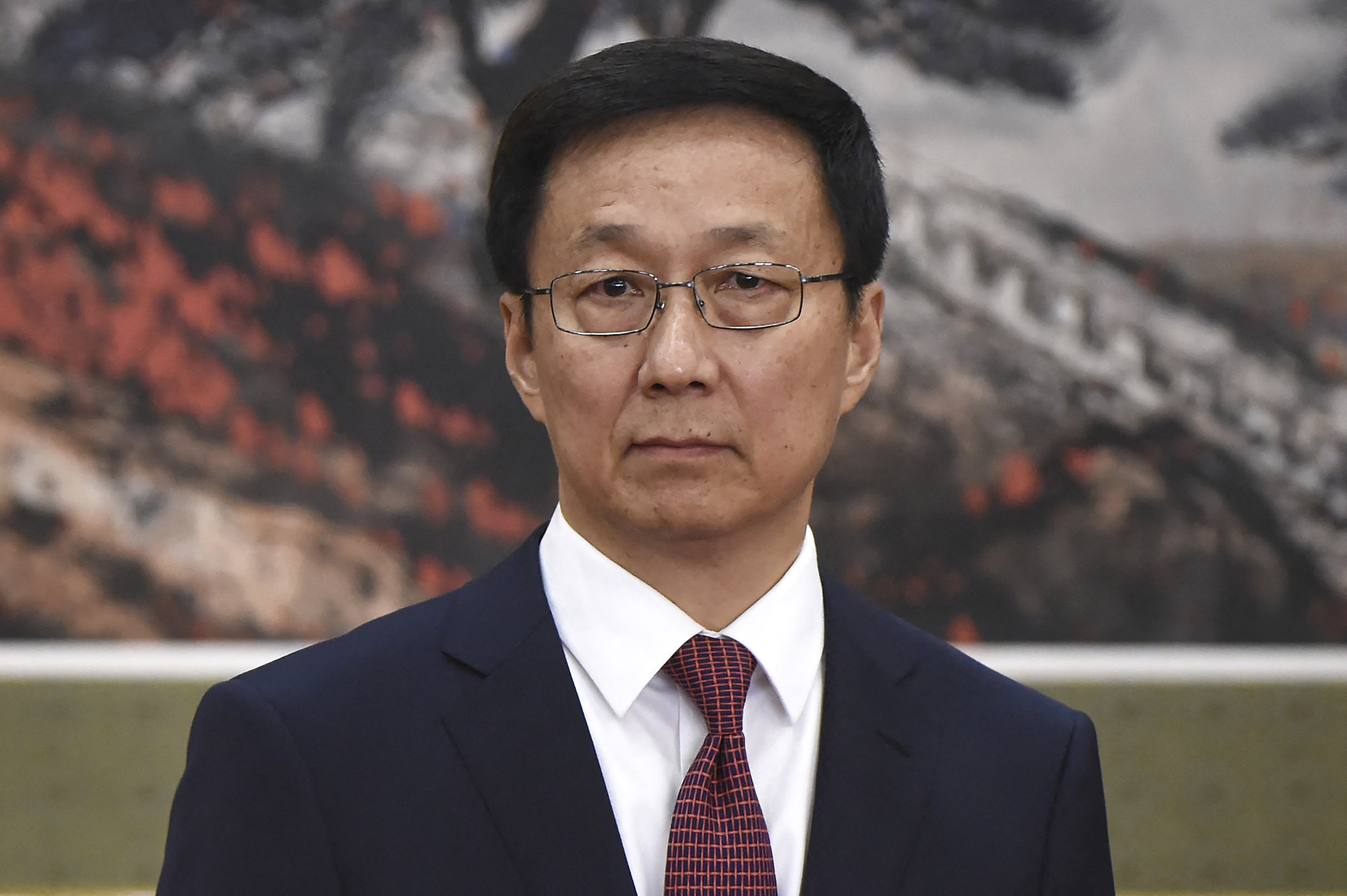
US-China ties seen ‘warming up again in stages’ as top officials meet
- Chinese vice-president is set to meet US secretary of state in New York
- There is ‘clear political will’ to manage tensions, according to analyst

According to the US readout, the Malta meeting was part of “ongoing efforts to maintain open lines of communication and responsibly manage the relationship”. It also said the US “noted the importance of peace and stability across the Taiwan Strait”.
China’s foreign ministry on Sunday said the talks were focused on “stabilising and improving relations”.
Wang stressed that the Taiwan issue was the “first insurmountable red line in Sino-US relations”, and that Chinese people could not be deprived of their “legitimate right to development”.
Wang told Malta’s President George Vella that he had discussed with Sullivan ways to effectively manage differences and explore mutually beneficial cooperation, calling the meeting “comprehensive, in-depth and beneficial”, according to a separate Chinese statement.
Readouts from both sides said Wang and Sullivan had agreed to maintain high-level exchanges and pursue further talks in “key areas” in the coming months.
Reuters reported that the meeting spanned about 12 hours and quoted a senior US official as saying there were “limited” early signs that military communications between the nations may be restored.
It was the second meeting between Wang and Sullivan in about four months, as both sides seek to repair frayed ties and manage rising tensions.
A number of top US officials have visited China in recent months, including Blinken, Treasury Secretary Janet Yellen, Commerce Secretary Gina Raimondo and climate envoy John Kerry.
Wang Yiwei, an international relations professor at Renmin University in Beijing, said the latest talks showed that US-China ties were “indeed warming up again in stages”.
He said Chinese President Xi Jinping’s absence from recent international forums had raised concern that an anticipated meeting with his US counterpart Joe Biden may not happen.
Xi did not attend the Group of 20 summit in India earlier this month, sending Premier Li Qiang instead. Vice-President Han Zheng will take Xi’s place at the UN General Assembly in New York this week.
“Many are worried that any hope of a Xi-Biden meeting has been dashed. The conversation [between Wang Yi and Sullivan] was largely for the purpose of laying the foundation for a meeting between the two leaders,” he said.
Dylan Loh, an assistant professor of foreign policy at Nanyang Technological University in Singapore, said that – especially now – any meetings between US and Chinese officials were important.
“There are multiple points of contention between Beijing and Washington and the overall relationship has been rocky so any communication is helpful and takes on extra significance,” he said.
In recent weeks, the two powers have sparred over issues including visits by Taiwanese delegations to the US and what Beijing perceives as attempts by Washington to contain China economically.
But Loh said that despite the “overall negative structure of their relationship, there is clear political will to maintain and even increase communication”.
He added that the Wang-Sullivan talks indicated that both sides wanted – and were working towards – a meeting between their top leaders.
Wang from Renmin University said Washington had much to gain politically from mending its ties with Beijing.
He said the Biden administration would want to “make achievements in its relations with China” as the US election neared.
The US may also need to enlist China’s help on international issues such as Russia’s war in Ukraine, he said, while pressure had been growing from the business community to improve ties.
“Biden is hoping to bring down the temperature,” he said. “His administration will spare no effort on the domestic and foreign affairs fronts to win the election.”
The international relations professor also said the weekend talks showed there was a consensus on both sides for “guard rails” to be discussed even as the two countries engage in competition.
Wang said that was particularly important as concerns grew over a potential conflict in the Taiwan Strait amid increased military activity in the area.
“This issue requires some urgent communication,” he said.

